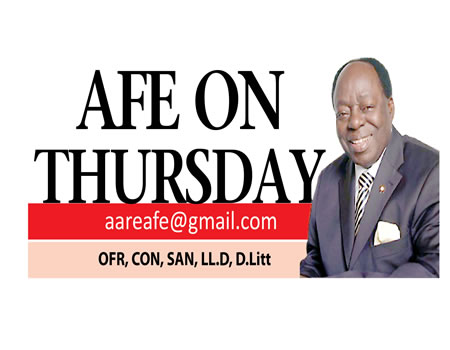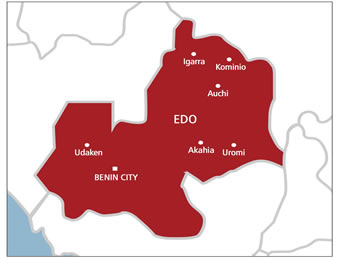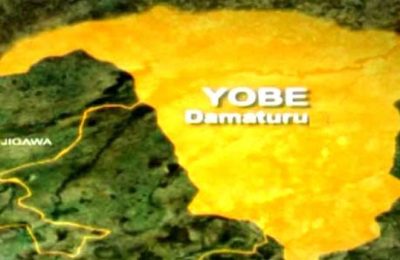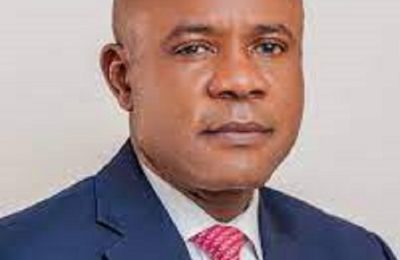THERE is no way democracy can be divorced from elections. In fact, elections are the handmaid of democracy. In advanced democracies of the world, they have attained a level whereby their electoral system is transparent, peaceful, orderly and generally acceptable. Situations whereby electoral officials collude and or connive with discredited politicians to subvert the peoples’ will should be thoroughly condemned and avoided. In this regard, electoral officials should be properly trained and sensitized on the need to be honest and realize that the success or failure of the exercise depends much on them. This, no doubt, is one of the crucial ways by which we can sustain our democracy.
Suggestions

There is urgent need to amend relevant laws to reflect the following: (i.) There should be a fixed amount that any aspirants to specific elective offices could spend in the course of pursuing his/her political ambition. This may sound somewhat difficult to ascertain or monitor but I strongly believe that established bodies like EFCC can be vested with the responsibility of monitoring political office-seekers for compliance. Where there is no law there is no offence. (ii.) The issue of declaration of assets should be taken seriously especially for all political aspirants. Not only should this requirement be made mandatory, the declaration must precede elections and also published. Situations wherein declarations are done after elections have been won and winners assume office should be condemned. It gives room for fraud and outright manipulations. The sanction should be disqualification from contesting elections.
(iii.) The Code of Conduct Bureau should be strengthened and made independent of other laws except the Constitution of Nigeria. To this end such potential impediments like immunity, judicial review etc should not be allowed to hamper the operations of this body. More importantly, the status of Code of Conduct Bureau should be clearly stated to be that of the High Court. (iv.) Elections into the National Assembly and State Assemblies should be revisited. In order to curb the influx of questionable characters and political illiterates into our legislative Houses therefore, elections should be based strictly on defined representations. A proportion of seats should be reserved for university/ academic community; labour, certain professionals, students body etc.
We must appreciate that we have not attained the level of political sophistication of advanced Democracies of the world like USA, Britain, Franceetcwhere the result of any election depends on manifestos. It is my strong contention that we have reached a stage in this country where we can no longer afford to jettison certain segments of our society (like the university community) and unwittingly continue to allow moneybags and miscreants control our destiny. It will serve us no good copying and or importing wholesale the practice in U.S.A. etc.


General overview
The journey of a thousand years, they say, begins with a step. No nation reaches perfection especially on the issue of democracy without passing through rough roads. Nigeria cannot be an exception. In the past, we were unable to sustain democracy; in the present, we are struggling to sustain, the future however, that begins the next moment must be fully taken care of from now. Compared with advanced democracies of the world like United States of America, Nigeria is relatively young. Out of forty six years of independence, Nigeria tasted what could be likened to democracy for just seventeen years. This comprised of Balewa Era, 1st Republic (1960-66), Shagari Era 2nd Republic (1979-1983) and Obasanjo – present dispensation (1999-2006). Seventeen years, by all standard, is too short a period for a Nation to boast of entrenchment of democracy.
If Nigeria experienced intermittent truncation of its democracy in so short a time then the role of our people becomes the issue. In other words, should the people be partly or wholly held responsible? If the truth must be told, the role of the people cannot be wished away. For example, by late 1965, the entire part of Western Nigeria (what is now commonly referred to as South-West geopolitical zone) had gone up in flames. What gradually began as mere personality clashes within a short period graduated to political upheaval which in turn snowballed into full conflagration.
This was the aftermath of western regional election crises. It got so bad that human beings were being burnt openly in the name of politics. The region was practically on fire. Before that year ran out, people were already calling for urgent intervention by another means. The ambitious young military officers capitalized on this situation and staged a military coup that finally nailed the coffin of the 1st Republic. Since then, the army have become a recurring decimal in the political calculus of Nigeria.
When after 13 years of military rule (1966-1979), the army finally handed over to civilian regime of AlhajiShehuShagari, many commentators and political optimists rushed into a hasty conclusion that the army had gone for ever. They were wrong. By December, 1983, just four years after General OlusegunObasanjo handed over to the newly inaugurated civilian regime, people were already calling on the army to intervene again! The situation was not helped by the crises that followed the general elections of 1983 especially in the Western part of Nigeria. Just as Nigeria experienced in the first intervention, the second intervention was to last for another sixteen years (1983-1999).
The point I am trying to make here is that calling on the army at the slightest political provocation would never do us any good. One would only hope that Nigerian has learnt her lesson hence the collective resolve to swim together to political safety and not sink together. As I said earlier, other established democracies of the world have passed through this route before.
Conclusion
Sustaining and or nurturing democracy takes a lot. There is no way an enduring democracy can be attained without collective effort of the army and the civilians which as a matter of necessity would involve sacrifice, patience and readiness to weather the storm. The role of the people thus becomes the determining factor in all cases. The academia, the press, the masses and the army must be prepared to work together with the civilian rulers. As long as the top echelon of the armed forces of the Federation refuse to accept the superiority of civilian regime and subject themselves to political authority – and the superiority of peoples will, so long shall Nigeria continue to experience political disruptions in the name of military intervention. One only prays that having experienced “two different husbands”, Nigerian have learnt their lessons in a very bitter way. May we never witness disruption again, Amen.
AARE AFE BABALOLA, OFR, CON, SAN, LL.D
Read Also: One shot as Police foil kidnap attempt in Abuja estate








